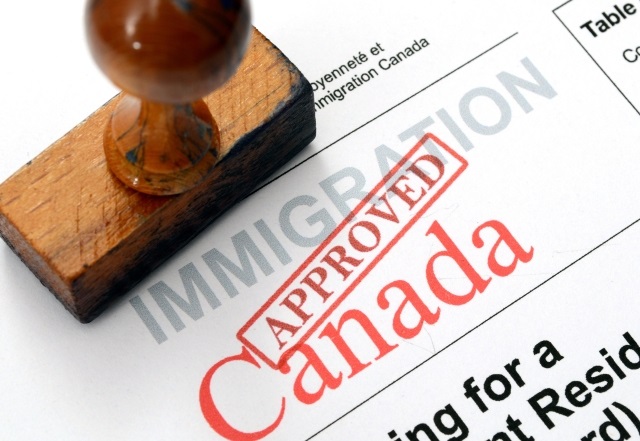How to Sponsor Your Parents and Grandparents

You may be able to sponsor your parents and grandparents to become a permanent resident if you’re at least 18 years old and a:
- Canadian citizen or
- person registered in Canada as an Indian under the Canadian Indian Act or
- permanent resident of Canada
If you sponsor your parents and grandparents to come to Canada as a permanent resident, you must:
- support them financially. Find out for how long.
- make sure they don’t need social assistance from the government
- provide for your own essential needs and those of your parents and grandparents and their dependants
Here are the steps to take to sponsor your parents and grandparents:
- Find out if you’re eligible
- The government will select potential sponsors
- Keep an eye out if you’re selected
- Apply
- Check processing times
- Refer to the next steps after you submit the application
- Prepare for your arrival
Finding out if You’re Eligible
Your relative immigrating to Canada within the Family Class must have a sponsor. Both the person sponsoring a relative and the person wishing to immigrate to Canada must meet certain requirements.
Applicants for permanent residence must go through:
- medical exams
- criminal checks
- background checks
An applicant with a criminal record may not be allowed to enter Canada. People who pose a risk to Canada’s security are not allowed to enter Canada. The applicant may have to provide a certificate from police authorities in the home country.
Who is eligible to sponsor a parent or grandparent
You can sponsor your parents and grandparents if you’re 18 years of age or older, living in Canada and are a:
- Canadian citizen or
- person registered in Canada as an Indian under the Canadian Indian Act or
- permanent resident of Canada
If you live in Quebec, you must also meet Quebec‘s immigration sponsorship requirements after we approve you as a sponsor.
Who Isn’t Eligible to Sponsor a Parent or Grandparent
You may not be eligible to sponsor your parents and grandparents if you:
- are in prison
- defaulted on an immigration loan (late or missed payments)
- have declared bankruptcy and haven’t been released from it yet
- received government financial assistance for reasons other than a disability
- didn’t pay a court-ordered support order, such as alimony or child support
- didn’t provide the financial support you agreed to when you signed a sponsorship agreement to sponsor another relative in the past
- were convicted of a violent criminal offence, any offence against a relative or any sexual offence, depending on circumstances, such as:
- the nature of the offence
- how long ago it occurred
- whether a record suspension (formerly called “pardons†in Canada) was issued
Other factors not in this list might also make you ineligible to sponsor your parents and grandparents.
Selecting Potential Sponsors
The Government reviews all submissions and remove any duplicates. Then they randomly select potential sponsors and invite them to submit a complete application.
Finding Out If You Are Selected
The Government emails potential sponsors who were randomly selected and invite them to submit a complete application.
Also, the Government posts the selected confirmation numbers on this website, but we remove them once the deadline to submit an application passes. Everyone who submitted an interest to sponsor form got a confirmation number.
Apply
If you’re invited to submit a complete application, you have until the deadline specified in your invitation to fill out the forms and submit a complete application to sponsor your parents or grandparents.
Check Processing Times
Find out how long it will take it will take to process your application for family sponsorship.
Next Steps
If your application is sent back:
- it’s incomplete
- fees are missing
- you weren’t randomly selected to submit an application
- we don’t receive it within the deadline specified in your invitation
If you’re an approved sponsor:
- the Government will assess the eligibility of the person you want to sponsor
If you are refused as a sponsor:
- Your relative can still apply for permanent residence, but the Government can’t guarantee that their application will get approved.
Check the status of your application:
Change in contact information or in personal circumstances:
- Make sure your contact information and your application details are up to date
- If your change your contact information, make sure you check your old contact information until the Government updates your application
In the case of withdrawing your sponsorship application:
- You can withdraw your sponsorship application any time before the relative you’re sponsoring becomes a permanent resident of Canada
- Your may be able to get a refund if your application hasn’t been processed yet
- Use our web form to request the withdrawal of your sponsorship application.
- In your request, include your:
- full name
- date of birth
- country of birth
- application number (if you know it)
- relative’s Client ID Number (UCI) (if you know it)
Appoint or change a representative:
- To appoint or change a representative, send us a completed and signed Use of a Representative form (IMM5476) through our web form.
- In your request, include your:
- full name
- date of birth
- country of birth
- application number (if you know it)
- relative’s Client ID Number (UCI) (if you know it)
- You can upload the form after you’ve completed all the required fields.
Submitting your Right of Permanent Residence Fee (RPRF) or request a refund:
- Use the web form if:
- There are instructions for your relative to pay the RPRF or
- you want a refund for the RPRF because:
- you’re withdrawing your sponsorship
- your parent or grandparent was refused (we can only issue refunds once you decline your right of appeal)
- In your request, include the:
- full name
- date of birth
- country of birth
- application number (if you know it)
- relative’s Client ID Number (UCI) (if you know it)
- copy of the Official Receipt
- copy of signed right of appeal (if you have one)
- You can upload the Official Receipt after you’ve completed all the required fields.
Prepare for Arrival
When you arrive in Canada, you must show your Confirmation of Permanent Residence (COPR) and your permanent resident visa to a Immigration, Refugees and Citizenship Canada (IRCC) officer at the point of entry to Canada. The officer will make sure your travel and immigration documents are correct.
- The IRCC officer will check that your permanent resident visa has not expired. The expiry date is shown on the visa. You cannot use the visa after it expires. A permanent residence visa cannot be extended, so make sure you use it within the time limit.
- You must bring a valid passport from your home country with you. Your passport must be a regular, private passport. You cannot immigrate to Canada with a diplomatic, government service or public affairs passport.
- You will have to answer questions like the ones you answered on your Application for Permanent Residence in Canada. The IRCC officer asks these questions to verify information on the application.
- You must inform the IRCC officer of any funds you are bringing into Canada (cash, stocks, bonds, money orders, traveller’s cheques, etc.)
If there are no problems when you arrive in Canada, the IRCC officer will authorize you to enter Canada as a permanent resident. The officer will also use the address on your COPR to have your permanent resident card mailed to you. Make sure your Canadian address on the COPR is correct.
Permanent residents are given the permanent resident card as proof of their status in Canada. Your card will be mailed to your Canadian address after you arrive in Canada as a permanent resident.
Get In Touch
Contact us, or Read more on our WebsiteSend a Message
The Law Office of Evangeline Ancheta
1420 Burnhamthorpe Road East
Suite 305
Mississauga, Ontario
L4X 2Z9
Telephone: 647-977-2889
Facsimile: 905-232-1088
Email: info@anchetalaw.com
Our Location
The Law Office of Evangeline Ancheta
Read More:
Fill out our Free Assessment form to discover your opportunities to come to Canada.
Read our Immigration pages to find out about all available programs to immigrate to Canada.
Read our Temporary Residence pages to find out about ways you can come to Canada, to visit, study or work.
Read our Status and Appeals pages to find out how we can help you verify, restore or appeal your status in Canada.

0 Comments